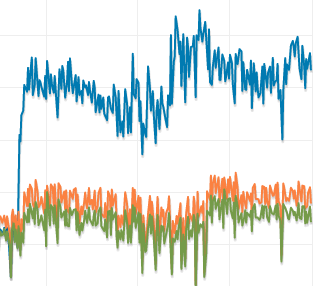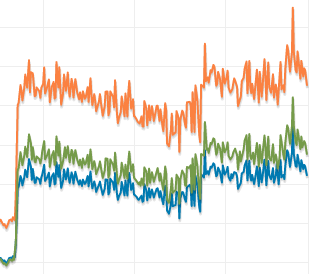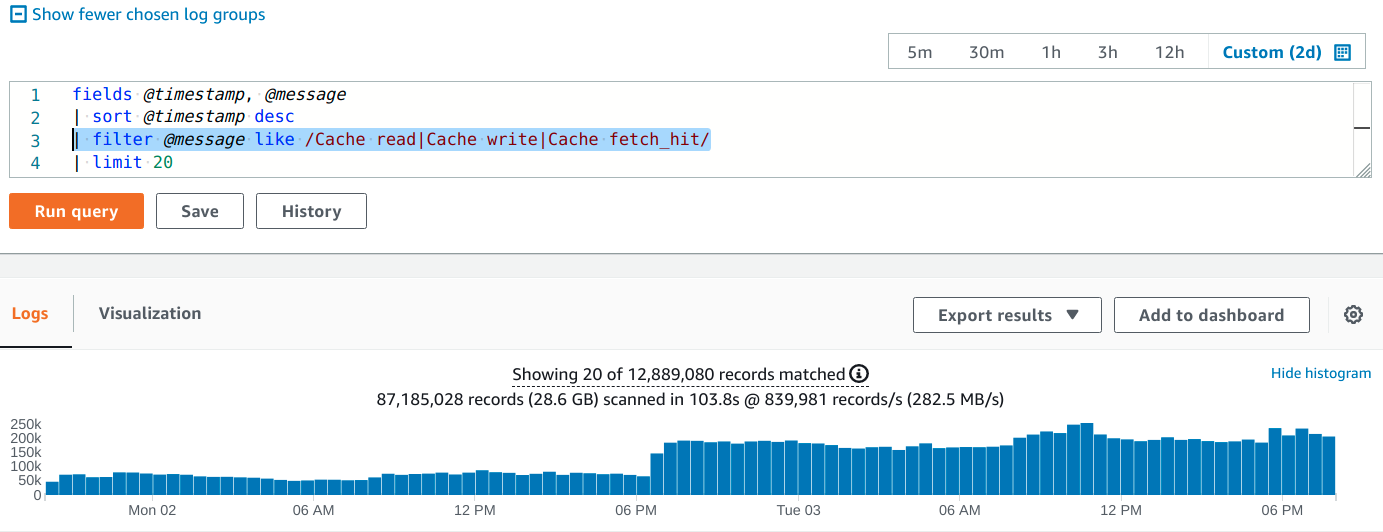flipper: Problems with version 0.22.0 - Rack::Timeout::RequestTimeoutException + ThreadError
Hey guys,
Recently we changed our Flipper version from 0.13.0 to 0.22.0 and we started to see a lot of Rack::Timeout::RequestTimeoutException and ThreadError in our application. I’m not sure yet but those problems seem to be related to an increase in the number of times we hit the cache to write/read data.
We noticed during a debug session that when I request a FF for the first time Flipper writes all of them in our cache including the keys flipper/v1/features and flipper/v1/get_all then when I try to request another FF (present in our cache), the debug logs prints like:
$ DEBUG -- : Cache write: flipper/v1/get_all ({:expires_in=>5 minutes, :unless_exist=>true})
$ DEBUG -- : Cache read: flipper/v1/features ({:expires_in=>5 minutes})
$ DEBUG -- : Cache fetch_hit: flipper/v1/features ({:expires_in=>5 minutes})
$ DEBUG -- : Cache read_multi: [ ALL MY FF's HERE ]
$ DEBUG -- : Cache read: flipper/v1/features ({:expires_in=>5 minutes})
$ DEBUG -- : Cache fetch_hit: flipper/v1/features ({:expires_in=>5 minutes})
$ DEBUG -- : Cache read: flipper/v1/feature/<my FF here> ({:expires_in=>5 minutes})
$ DEBUG -- : Cache fetch_hit: flipper/v1/feature/<my FF here> ({:expires_in=>5 minutes})
$ DEBUG -- : Cache read: flipper/v1/feature/<my FF here> ({:expires_in=>5 minutes})
$ DEBUG -- : Cache fetch_hit: flipper/v1/feature/<my FF here> ({:expires_in=>5 minutes})
Notes:
- The FF I’m requesting is already written in the cache
- It seems to request everything again, write again
- Notice that the last
readandfetch_hitlines repeat for the same FF
Metrics
This is a metric from the Memcache instance that illustrates what happened when the new version was delivered in production. It’s an average of “Set” command in 5 minutes.

The same pattern repeats for the “Get” command.

One other interesting thing to notice is the pattern once more when looking at the occurrences of Cache * operations in our log files.

My environment
# Gemfile
ruby '~> 2.5.1'
gem 'puma', '~> 3.7.0'
gem 'rails', '5.2.3'
gem 'rack', '2.1.3'
# application/config/initializers/flipper.rb
# frozen_string_literal: true
require 'flipper'
require 'flipper/adapters/active_record'
require 'flipper/adapters/active_support_cache_store'
class CustomFlipperCacheStore < Flipper::Adapters::ActiveSupportCacheStore
def get(feature)
# Allow % of actors to be used without cache
return @adapter.get(feature) if feature.key.end_with?('_some_pattern')
super
end
end
Flipper.configure do |config|
config.adapter do
CustomFlipperCacheStore.new(
Flipper::Adapters::ActiveRecord.new,
Rails.cache,
expires_in: 5.minutes
)
end
end
Logs
Rack::Timeout::RequestTimeoutException: Request ran for longer than 60000ms
from flipper/adapters/active_support_cache_store.rb:136:in `read_many_features'
from flipper/adapters/active_support_cache_store.rb:91:in `get_all'
from flipper/adapters/memoizable.rb:108:in `get_all'
from flipper/dsl.rb:200:in `preload_all'
from flipper/middleware/memoizer.rb:73:in `memoized_call'
from flipper/middleware/memoizer.rb:42:in `call'
ThreadError: deadlock; recursive locking
from flipper/adapters/active_support_cache_store.rb:129:in `read_feature_keys'
from flipper/adapters/active_support_cache_store.rb:90:in `get_all'
from flipper/adapters/memoizable.rb:108:in `get_all'
from flipper/dsl.rb:200:in `preload_all'
from flipper/middleware/memoizer.rb:73:in `memoized_call'
from flipper/middleware/memoizer.rb:42:in `call'
I’m looking for any insight that could help us to work around this problem. 😃 Thanks
About this issue
- Original URL
- State: closed
- Created 3 years ago
- Comments: 15
Sorry, the multiple adapter calls when you use
#inspectare negated by memoization/preloading. The first call would be memoized and all subsequent would be served from memory.Ok, I understand what you are getting at now. Thanks for explaining. For serving API requests, you are correct in that you might want to disable preloading on individual feature requests to achieve optimal network requests.
Off the top of my head, I think you could do this:
It does make me wonder if we need an
:if/:unlessoption for preloading (instead of memoizing and preloading together). Then, you could leave memoization on and just turn preloading off for the individual feature routes.